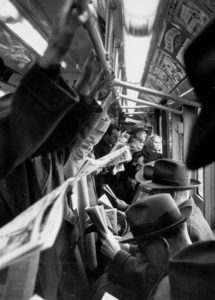Type of Progym: Encomium
“photography will tour the world for us and bring back the universe in a portfolio, without our needing even to stir from our armchair” (9)
If I could travel with just one thing, it would undoubtedly be a camera. I’ve always loved taking pictures, especially of nature or any sort of landscape. Even though I don’t pick up my camera as much as I used to, every time I go on a trip I come back thinking I should do it more often. Something about it has always been so relaxing to me, yet I’ve never been able to pinpoint why this is. Every time I go to a new place, I come back with thousands of new pictures, probably way more than I should’ve taken in the first place. Most of these end up being of the architecture around me, many times of the same place from different angles. While some may say spending the entire trip photographing sights won’t allow us to see a place for what it is, I don’t necessarily agree. Sometimes, photographing the sights different places have to offer us can help us focus on small details, especially when it comes to architecture. I’ve always been mesmerized by the different styles of architecture places around the world have to offer, which is probably why I these are one of my favorite things to photograph. Just like the article mentions, humans aren’t the main focus in these pictures, it is instead different details these places have to offer. From the “Bean” in Chicago to the Moroccan-inspired architecture of the Alhambra, capturing the magnificent details of these places can help us appreciate them even more. Sometimes when visiting these places, our eyes can only focus on so much. With so much to admire, a picture is a great way to look back and analyze the small details we may have not seen when we were there in person. Personally, I could look through pictures of old trips and overanalyze the details in each photograph for hours, feeling mesmerized by the sights I’ve previously experienced. I probably do this way more than I would like to admit, possibly because I love the feeling of nostalgia and amazement it gives me. While the pictures are definitely not out of the ordinary, they make me feel as if I was back in the moment where I took the picture, experiencing for the first time all over again.
